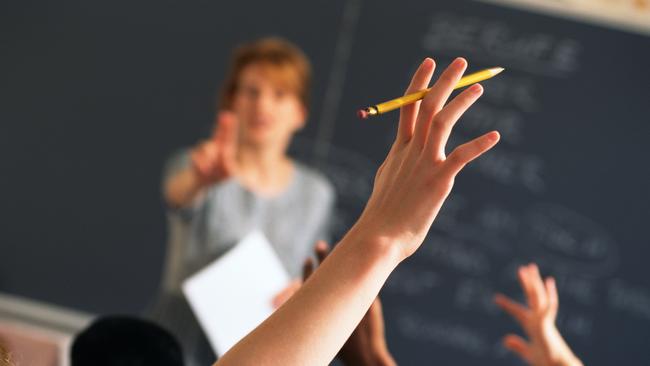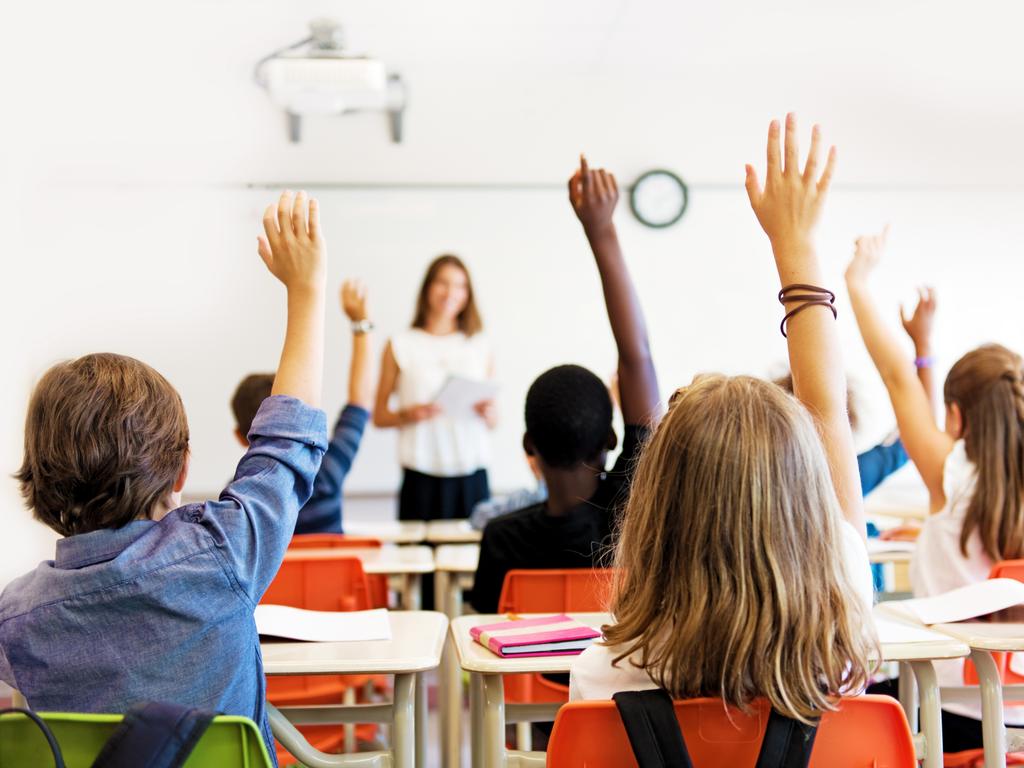Universities on notice for poorly trained teachers
Universities will face sanctions over teaching degrees that produce graduates who cannot control rowdy classrooms or instruct children to read and write.

Universities will face sanctions over teaching degrees that produce graduates who cannot control rowdy classrooms or instruct children to read and write, in a national push to improve teaching standards.
A teacher training fix, a national ban on smartphones in classrooms and rules on the use of artificial intelligence in schools will be revealed after a marathon meeting of federal, state and territory education ministers in Canberra on Thursday and Friday.
State and territory ministers, who control teacher registration, will finalise plans to force universities to improve the quality of teacher education degrees.
Ministers will consider the final report of a teacher training review chaired by University of Sydney vice-chancellor Mark Scott, who began his career as a high school teacher before heading the NSW Department of Education.
Professor Scott has recommended that the Australian Institute for Teaching and School Leadership draw up new national “performance measures’’ for teaching degrees.
Universities would have to focus on training teachers in the science of learning, teaching children literacy and numeracy, and keeping classrooms under control.
Each university’s performance would be made public, and those that fail to meet the new standards could risk losing funding or full accreditation for their courses.
School students have expressed their desire for calmer classrooms, in a federal government survey of 2790 students that found 40 per cent wanted schools to do more to “manage classroom disruption’’.
The survey, to be discussed by ministers on Thursday, shows that more than half of the 8494 parents surveyed wanted small-group tutoring to help their children at school.
And three-quarters of nearly 14,000 teachers said “reducing workload’’ must be a priority, by reducing administration tasks and hiring extra support staff.
The impact of classroom disruption on student learning is also detailed in a consultation paper released by federal Education Minister Jason Clare on Wednesday.
“Students who do not engage with classroom learning or who are disruptive in class are more likely to perform poorly in reading and numeracy than their more productive peers,’’ it states.
“Analysis of NAPLAN (the National Assessment Program – Literacy and Numeracy) has shown that a year 7 student who is attentive in class could be six months ahead in their learning by year 9, compared to a student who is disruptive or breaks school rules.’’
The document also raises concerns about university degrees for teachers, noting that 37 per cent of would-be teachers who started an education degree in 2016 had failed to complete their studies six years later.
Education ministers will deliberate on a long list of reforms that include controls over the use of AI in schools, a national ban on smartphones in class to reduce cyber bullying and distraction, and strategies to turn around record rates of truancy.
Mr Clare will also chair the first meeting of his newly appointed advisory group of 54 education leaders, researchers, charity and union representatives – as well as eight school teachers and eight high school students.
The group will be a “sounding board’’ for the next School Reform Agreement, which will set priorities for taxpayer spending on education from 2025.
Mr Clare said he was committed to working with state and territory governments to increase funding for schools that are still not receiving 100 per cent of the money deemed necessary for a basic education.
“Funding is critical, but so is what it does,’’ he said. “That’s why we want to hear what practical reforms are needed to help students who fall behind, and help more students finish high school.’’
The consultation paper proposes that student wellbeing – including physical and mental health and happiness – be as much of a priority for schools as academic achievement.
It cites data that students with mental health problems miss twice as much school as other students, and are on average 1.5 to two years behind classmates in literacy and numeracy outcomes by year 9.
“Wellbeing and learning cannot be decoupled,’’ the paper states. “Schools that support good mental health and wellbeing are not only meeting their duty of care requirements but also delivering the environment required for students to learn.’’
The paper says many aspects of student health and wellbeing “need to be addressed outside the school gates’’.
Australian Education Union deputy federal president Meredith Peace said Australia has one of the most segregated education systems in the world. “Resources delayed are resources denied. Public schools need smaller class sizes (and) real improvements in one-on-one support.’’








To join the conversation, please log in. Don't have an account? Register
Join the conversation, you are commenting as Logout